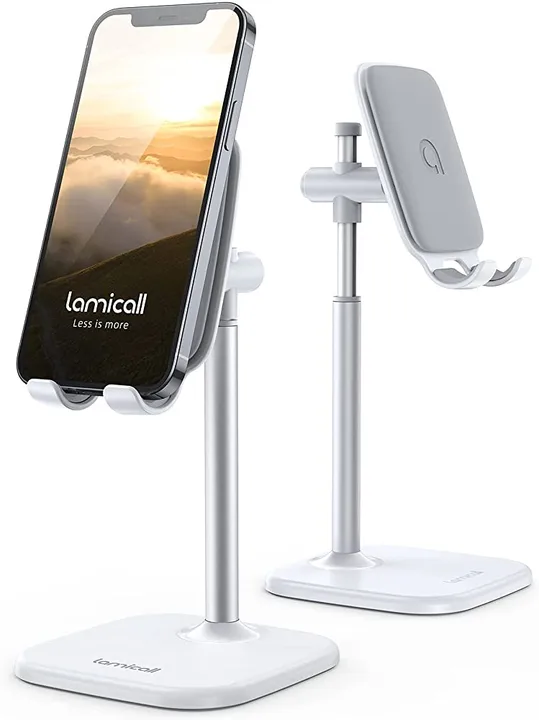Why do Brits say “mobile” instead of “cell phone”?

Exploring the Origin of the Term “Mobile” and Its Usage in British English
In the UK, the word “mobile” is widely used to describe a cell phone. But why? Where does this term come from, and why is it so popular in the British Isles? To answer these questions, it’s important to look at the history of the term “mobile” and how it has become so widely used in the UK.
The Origins of “Mobile”
The word “mobile” has its roots in the early days of telecommunications. In the 19th century, the term “mobile telephone” was used to refer to a system of linked telephones that could be used over long distances. This system was first developed in the UK, and so the term “mobile” became widely used in the British Isles.
As time went on, the term “mobile” became more widely used to refer to any type of telephone that could be used on the go. This included car phones and portable phones, as well as the modern-day mobile phones. As the technology advanced, so did the use of the term “mobile” in British English.
How “Mobile” Became the Norm in British English
The term “mobile” became the norm in British English due to its widespread use in the media. Newspapers and magazines began using the term “mobile” in the late 1980s, and it quickly became the accepted term for any type of telephone. The term was also used in advertising campaigns and commercials, further cementing its place in the British English language.
In addition, the term “mobile” was used by the telecom industry in the UK. Companies such as Vodafone, O2, and Orange used the term “mobile” to refer to their services, and this helped to popularize the use of the term in British English.
Conclusion
The term “mobile” has been used in British English for centuries, and it has become the accepted term for any type of telephone. The term was popularized by its use in the media, as well as by the telecom industry in the UK. Thanks to its widespread use, the term “mobile” has become the norm in British English, and it is now the accepted term for any type of mobile device.
A Look at How the Term “Mobile” Became Popular in the UK
The term “mobile” has been used in the UK to refer to cellular phones since the late 1990s. But why do the Brits prefer to call them mobiles rather than cell phones? The answer lies in the history of telecommunications in the UK and the emergence of a culture of mobile communication.
In the UK, cellular phones emerged in the 1980s. Initially, these were expensive, bulky devices that were seen as a luxury item. By the 1990s, cellular phones had become a more common sight and had begun to be called mobile phones in the UK. This was in part due to the rise of the mobile phone network, which allowed users to make calls from anywhere in the country.
The term “mobile” was also used due to the fact that many people in the UK carried their phones with them and used them on the move. This was a novelty at the time and people began to associate the term “mobile” with the idea of being able to communicate while on the go. It also helped that mobile phones had become more affordable and accessible to the public.
The term “mobile” also became associated with a culture of mobile communication. People in the UK began to use their mobiles as a way to stay in touch with their friends and family. This revolutionized communication in the UK and made it easier to keep in touch with people who lived far away.
In addition, the term “mobile” has become synonymous with the idea of being able to stay connected at all times. This is due to the fact that mobile phones have become ubiquitous and people now expect to be able to stay connected at all times. In the UK, the term “mobile” has become so entrenched that it is now the term used to refer to cellular phones.
So, why do Brits say “mobile” instead of “cell phone”? The answer lies in the history of telecommunications in the UK and the emergence of a culture of mobile communication. The term “mobile” has become associated with the idea of being able to stay connected at all times and has become a part of everyday life in the UK.
Comparing the Terms “Cell Phone” and “Mobile”: Cultural and Linguistic Differences
Have you ever wondered why Brits say “mobile” instead of “cell phone”? There are both cultural and linguistic differences that contribute to this difference in terminology. While the terms are both used to refer to the same device, the way they are used will vary depending on the region in which they are spoken.
The term “cell phone” originates from the U.S., where it is still the most commonly used term. The term “mobile” is more popular in the U.K., where it is used to refer to both mobile phones and cellular phones. The term “mobile” originated from the French word “mobilier”, which means “mobile”. This term was adopted by the British public and has since become the preferred term for mobile devices.
The cultural differences between the U.S. and the U.K. also contribute to this difference in terminology. In the U.S., the term “cell phone” is used more often because it implies a greater sense of portability. In the U.K., the term “mobile” is used more often because it suggests a greater degree of convenience and ease of use.
In addition to these cultural differences, there are also linguistic differences between the two terms. The term “cell phone” is derived from the Latin word “cella”, which means “small room”. This implies that the device is a self-contained unit that can be carried with ease. On the other hand, the term “mobile” is derived from the French word “mobilier”, which means “mobile”. This implies a greater degree of flexibility, as the device can be moved from one place to another.
While the terms “cell phone” and “mobile” are both used to refer to the same device, they are used differently depending on the region in which they are spoken. In the U.S., the term “cell phone” is used more often because it implies a greater sense of portability. In the U.K., the term “mobile” is used more often because it suggests a greater degree of convenience and ease of use. Ultimately, the choice of terminology is a matter of personal preference.
Investigating Why the Term “Mobile” Is Preferred in the UK over “Cell Phone”
When it comes to referring to a handheld device that you use to make calls and access the internet, the UK and the US have different terms they use. In the US, the common term is “cell phone”, while in the UK it is “mobile”. While both terms refer to the same thing, why is the UK more likely to use the term “mobile”?
One of the most likely explanations for why the UK prefers “mobile” to “cell phone” is that “mobile” has been around much longer. The first mobile phones were produced in the UK in the early 1980s, and the term “mobile” was quickly adopted as the official term for these devices. This was likely because the UK was ahead of the US in terms of technology at the time, and so the term “mobile” was more widely used.
Another explanation for why the term “mobile” is preferred in the UK is that it is a more descriptive term. “Cell phone” is a generic term that could refer to any type of handheld device, while “mobile” specifically refers to a device that is able to make and receive calls. This makes the term “mobile” more specific, making it easier to understand what someone is talking about when they use the term.
Finally, the term “mobile” may have become more popular in the UK due to the fact that it is a shorter and simpler word. “Cell phone” is a bit of a mouthful, whereas “mobile” is much easier to say. This may have made the term more popular in the UK, as people are more likely to use terms that are easier to say.
In conclusion, there are a few likely explanations for why the term “mobile” is preferred in the UK over “cell phone”. The term “mobile” has been around longer, is more descriptive, and is simpler to say. All of these factors likely contributed to the term “mobile” becoming more popular in the UK than “cell phone”.
